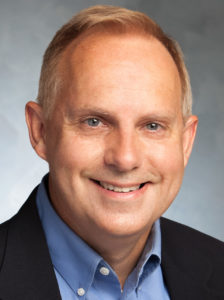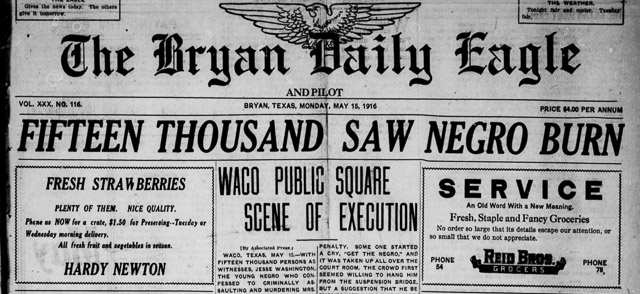I spoke for more than an hour and a half with a FOX News journalist yesterday. That interview ranged across Critical Race Theory, book banning and censorship, racism in American history, faith and spiritual practice, and what, at its best, America means.
I repeated the fact that Critical Race Theory is not taught in K-12 or even in most college classrooms, although I believe race and prejudice do need to be taught in an age-appropriate way, even if they make students — or, more likely, their parents — uncomfortable. I repeated my opinion that it is important ultimately to learn even unpleasant history. And I repeated the claim I recently made in this space that ignorance is a terrible spiritual practice.

Greg Garrett
I come to most issues looking through multiple lenses, and as I reflect on attempts across the country to legislate what white people should read and be taught in America at this moment, I am thinking simultaneously as professor, pastor and parent. I do want to protect children — including my children — from topics for which they’re not developmentally ready, and in my Fox News interview, I suggested that teaching on racism should be age appropriate. It’s painful but appropriate for me to talk with Baylor students about the lynching of Jesse Washington, which took place less than a mile away from where we sit. It would not be appropriate to inform kids in kindergarten that Mr. Washington was pulled from the Waco courthouse, stabbed, stripped, castrated and burned alive while more than 10,000 white folks watched, took pictures and collected souvenirs.
Spike Lee’s 2018 film Black Kklansman discusses “The Waco Horror” (as the Washington lynching became widely known), but few of my students had heard of this incident, which received national attention and rebuke, before watching Lee’s movie. Similarly, although (literally) untold numbers of people were killed, a prosperous Black neighborhood was burned to the ground, and 10,000 people were left homeless, I did not learn about the 1921 Tulsa Race Massacre (or the “Tulsa Race Riots,” as they are sometimes styled) in my Oklahoma history classes. I learned this Oklahoma history in the first episode of the 2019 HBO series Watchmen when I was almost 60 years old.
It hardly needs to be said that we should not be reduced to randomly learning about horrific history from American popular culture, but this is how things have often been and how some folks would like for them to be again.
Recently historian Ty Seidule and I talked about his book Robert E. Lee and Me, where he repeated points I have been learning about the racist teaching — and misteaching — of history in the South.
“Some of the most important facts about our American past were left out of what was taught to us and to generations of Southern children.”
In both of our experience — and, later, research — we encountered textbooks that minimized the effects of slavery and racism or ignored them. Some of the most important facts about our American past were left out of what was taught to us and to generations of Southern children — and parents, pressure groups and politicians are trying to perform the same white-washing of history for children today.
I told my interviewer that while some public figures are leaning into these culture war pronouncements as performative politics, and other people simply want to avoid uncomfortable truths, I believe some white Christian parents who want to protect their children from our painful history have pure motives. As I actually wrote for Fox News not too long ago, it’s important not to demonize those who think differently from us:
My years as a novelist have taught me that every character has history and motivations that shape what they do. My Grandma Irene preached to her grandson the preacher not because she wanted to drive me crazy, but because she wanted to make sure I was held securely by the God she loved. Even those people we might think of as Them have very real reasons for who they are and what they do.
But as I also told my interviewer, once white people have information about who we are, once they know the truth about what we’ve done and where we came from, there are only two options — to close our eyes to those truths, or to respond to them with repentance and the desire for repair.
In my FOX interview, I made clear that white children should not be taught that they are culpable for slavery, or that they themselves are racists who need to feel guilt and shame. As Catherine Meeks said recently in our race and the church program at Baylor’s Truett Seminary, guilt and shame don’t lead to constructive engagement or forward motion for any of us.
“Guilt and shame don’t lead to constructive engagement or forward motion for any of us.”
But our failure to engage with our history — our failure to tell the truth — has consequences that are personal, social and spiritual. How can we reckon with what racism has done to each of us, to our country, and to the church if we don’t even acknowledge it?
In the Gospel of John, Jesus says, “You will know the truth, and the truth will make you free.” In context he was talking about faith and practice, but my three lenses suggest his statement is no less true about most other matters. If the truth will set us free, if ignorance is a terrible practice, if what God truly wants from us is to act justly, love mercy and walk humbly, then it is essential that Christians respond to attempts to legislate or limit what is taught, what we can read and what we know by saying we are not afraid of the truth, that it should not be hidden away.
Jesus won the final victory against sin and death before I even showed up. The world may frighten us, the past may disturb us, but no power can separate us from the love of God. So, as Catherine Meeks told us in Waco: “Let’s get out of our safe space boxes. Let’s find a brave space where the truth can be told.”
We are called to open our eyes and to know the truth so it can set us free. Maybe not at 5 years old. But certainly not never.
Greg Garrett is an award-winning professor at Baylor University. One of America’s leading voices on religion and culture, he is the author of more than two dozen books, most recently In Conversation: Rowan Williams and Greg Garrett and A Long, Long Way: Hollywood’s Unfinished Journey from Racism to Reconciliation. He is currently administering a research grant on racism from the Eula Mae and John Baugh Foundation and writing a book on racial mythologies for Oxford University Press. Greg is a seminary-trained lay preacher in the Episcopal Church and canon theologian at the American Cathedral of the Holy Trinity in Paris. He lives in Austin with his wife, Jeanie, and their two daughters.
Related articles:
White hysteria, Critical Race Theory, and eyes that dare not see | Opinion by David Gushee
Who’s behind the nationwide attacks on local school boards over Critical Race Theory?
How 300 children lost their fathers to lynching on a single day because of a conspiracy theory | Opinion by Alan Bean

